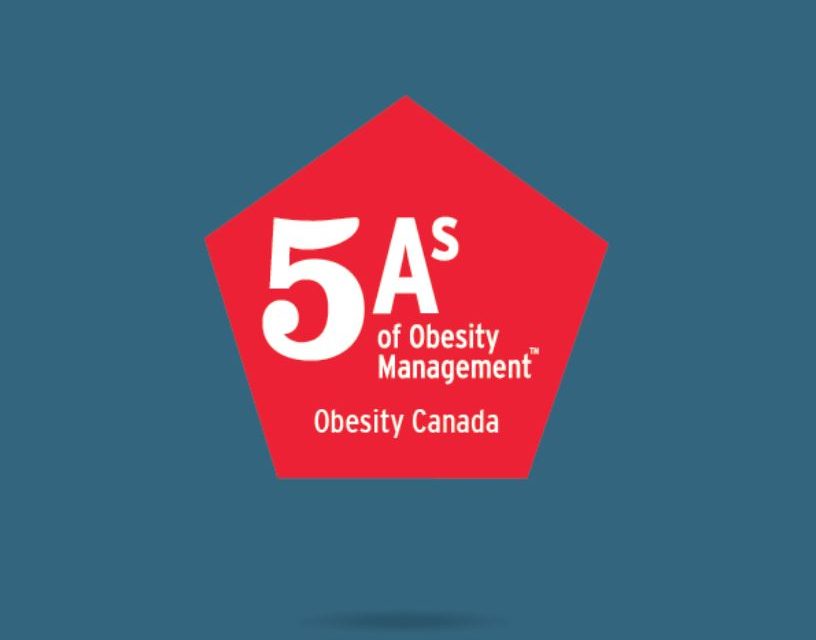This chapter of the 2020 Canadian Obesity Clinical Practice Guidelines focuses on how treatment of obesity works in the ‘real world’ of the family doctor/primary care setting, which is where the vast majority of weight management care happens. They address the question: how can we help equip the primary care workforce to address the needs of people who struggle with their weight?
This chapter helps close the gap between the evidence-based recommendations for obesity care and current clinical practices. Here are some of the highlights!
Use the 5As approach (as published in the CMAJ) to proactively have a conversation about overweight or obesity with your patient, starting with Asking permission to discuss weight. (current gap in care: many people who struggle with weight have never had a conversation with their health care provider about it)
Promote a holistic approach to weight and health, focusing on health behaviors and addressing root causes of weight gain. Avoid stigmatizing and don’t tell a patient to just ‘eat less and move more’.
Make sure your clinic is accessible and comfortable for people of all sizes; have chairs, gowns, BP cuffs, exam tables designed to fit larger bodies; remove all materials from the waiting room that stereotype people with obesity.
Evaluate whether any medications your patient is taking could be contributing to weight gain, and think about possible alternative medications that do not cause weight gain (note: this is emphasized in many chapters of the Guidelines).
Weight cycling (yo-yo’ing) has health risks – focus on strategies that help maintain sustained changes and healthy habits over the long term.
Set goals that are value-based and focus on health and quality of life, and shift focus away from numbers on the scale.
Help your patient using the long term, ‘small change approach’, to help manage weight.
Primary care multicomponent programs (incorporating behavioral change strategies, and support with dietary and activity changes) with personalized management strategies are an effective way to support people with obesity management.
Primary care interventions that are behavior based, alone or in combination with obesity medication, are recommended to treat overweight and obesity. (grade A, level 1A recommendation)
NOTE: This blog is not intended to be a full synopsis of the chapter. There is a wealth of information in this chapter that is beyond the scope of one blog post. I encourage everyone to dig in to the entire chapter!
Stay tuned for much more on the Obesity Guidelines in coming weeks!
Share this blog post using your favorite social media link below!
Follow me on twitter! @drsuepedersen
www.drsue.ca © 2020











